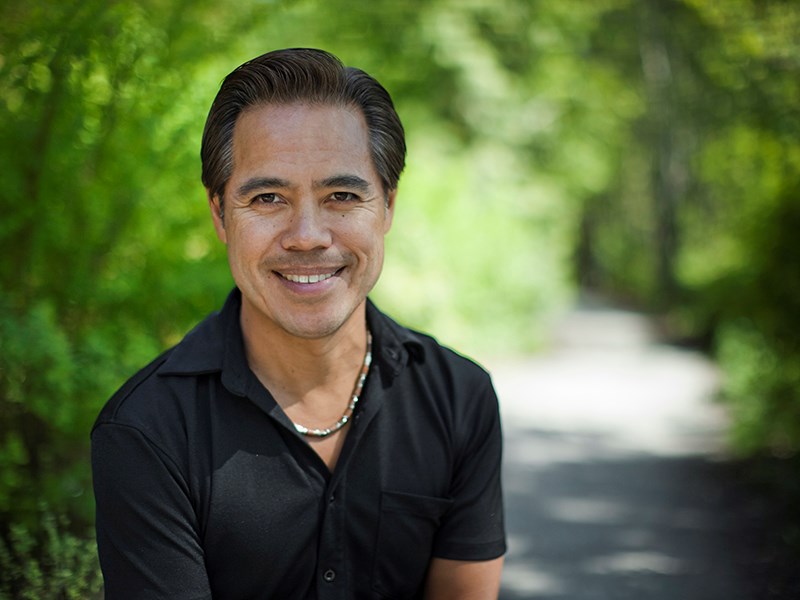A respected medical professional from Tla’amin Nation, Dr. Evan Adams, has been appointed to the board of directors of the Michael Smith Foundation for Health Research (MSFHR).
“The Michael Smith Foundation has been very forward thinking in including first nations and aboriginal people,” said Adams.
In his discussions with the foundation, Adams said it was clear that his voice on the MSFHR board would have a positive effect for first nations and broader communities.
Adams boasts an impressive list of accomplishments, including serving as chief medical officer for the First Nations Health Authority (FNHA) and being a former deputy provincial health officer. He was also chief resident at St Paul’s Hospital/University of BC, where he completed his aboriginal family-practice residency and has a masters of public health from Johns Hopkins University.
Above all of that, he said he is the product of his very strong Tla’amin heritage.
“It shaped everything that I am,” said Adams. “Powell River was very formative for me in that it’s largely rural, it’s a place where first nations and non-first nations people work together or don’t work together. Sometimes we’re not good at it but mostly we’re good at it.”
According to MSFHR president and CEO Diane Finegood, the foundation has supported hundreds of researchers over the years. It has received $450 million from the province since its inception.
Created in 2001 by the BC government and headquartered in Vancouver, the foundation is named for Nobel Laureate Michael Smith, who was a pre-eminent BC scientist. Smith died shortly after receiving his Nobel Prize for chemistry in 2000.
Sometimes, Adams said, research can be removed from everyday reality as it looks down from its ivory tower, but that’s not the case with MSFHR.
“What we’re discovering in research is that it has to be meaningful research, not just research for research sake, this pursuit of knowledge just for the sake of knowledge,” he said. “It has to be meaningful research that touches people’s lives.”
Adams said an example is the new area of personalized medicine where science and individualized treatment plans combine diagnosis and treatment to the individual rather than saying all cases should be treated one way.
For a change, Adams’ acting credits are not foremost in the MSFHR announcement of his appointment. In fact, it is not until the very last sentence that his acting career is mentioned.
Adams is often introduced first and foremost, as a well-known actor who starred in the Emmy-winning television movies, Lost in the Barrens, and its nominated sequel, Curse of the Viking Grave. He won best actor awards from the American Indian Film Festival and from First Americans in the Arts, as well as a 1999 Independent Spirit Award for best debut performance. Most recently, he was a cast member of the feature film Kayaking for Beginners, a story of a young aboriginal woman’s spiritual journey, which was shot around the Powell River region, mostly in Lund.
However, it is not for his acting chops that MSFHR recruited him.
“Dr. Adams brings an indigenous health perspective, which we feel is important,” said Finegood. “We see that as a priority in the foundation.”
Finegood said Adams’ experience as a health practitioner and chief medical officer of the FNHA will further strengthen a relationship between MSFHR and FNHA and, “enable us to identify key projects in indigenous health that we should be funding.”
According to Adams, there are pressing issues facing first nations communities in regard to health and wellness.
“Control over our own lives, bodies and health are the most pressing issues,” he said. “First nations people running their own health authority is the ultimate act of self-determination. We look after ourselves, it’s very important work and very expensive, complicated and demanding.”



